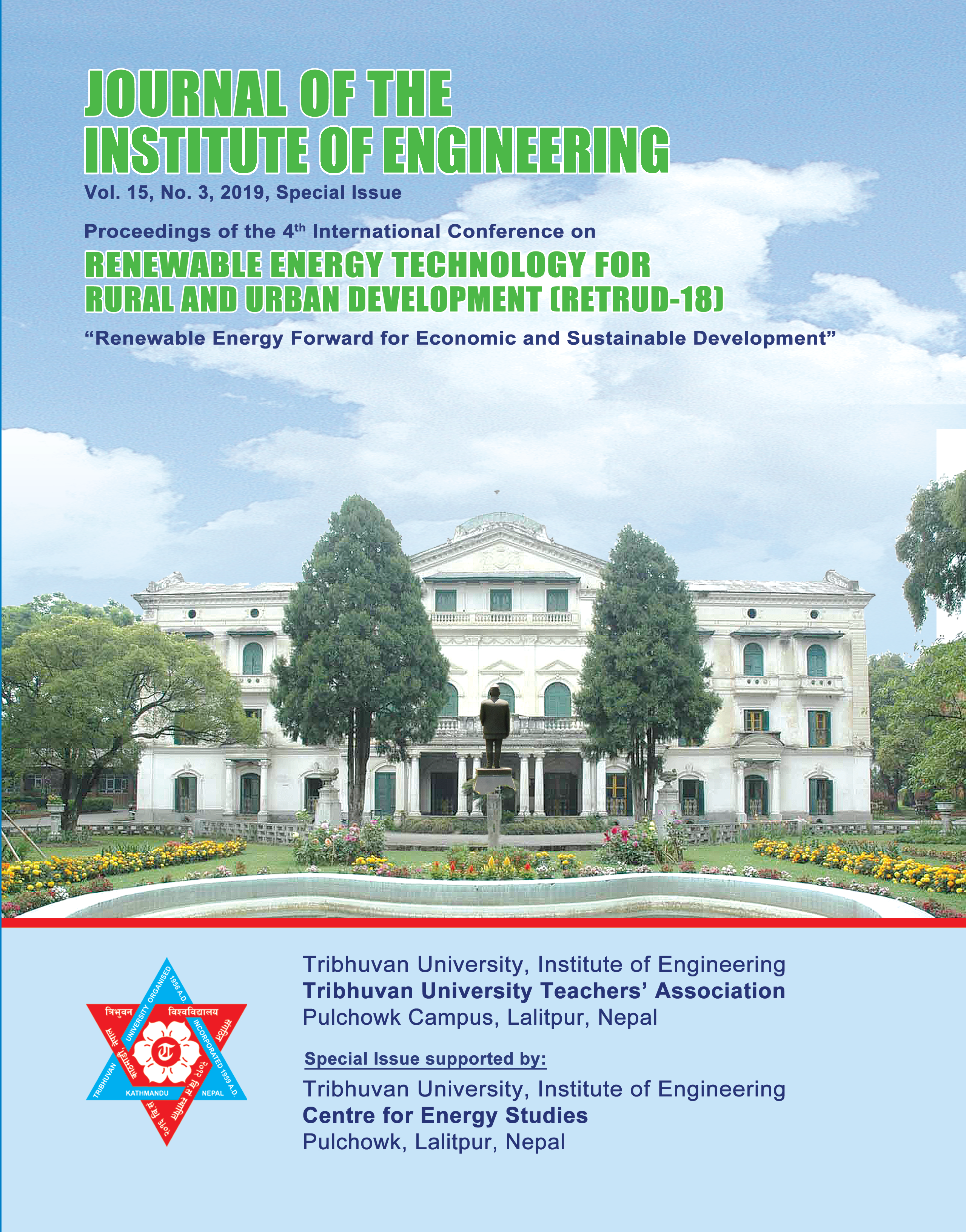Transdisciplinary Collaboration in Renewable Energy Projects - A Case Study from Mustang, Nepal
DOI:
https://doi.org/10.3126/jie.v15i3.32176Keywords:
Transdisciplinary Collaboration, Renewable Energy Project Planning, Stakeholder InclusionAbstract
In the recent years, transdisciplinary research and development have received increased attention, also in renewable energy planning and design. In contrast to theory-driven research, transdisciplinary approaches relate to the real-life phenomena and societally relevant problems. Transdisciplinary collaboration (TDC) emphasizes the mutual learning process between researchers and actors from outside academia, and the common creation of knowledge that is solution-oriented, socially robust and transferable to both scientific and societal practice. The following article discusses a transdisciplinary collaboration project on planning and designing a Solar Street Light solution in the village of Jhong, Mustang. The project is part of the MSESSD program at IOE, which has the goal to plan and implement renewable energy solution in rural areas in Nepal. The goal of the solar street light project was to contribute to Jhong’s approach of becoming a sustainable settlement. The article analyses three TDC phases of the project: 1. Gather information, discuss the problem with stakeholders and translate material, functional, operational requirements into scientific researchable questions. 2. Documenting strategies to develop a mutual learning process and 3. Assessing results for both for the stakeholders and for academic practice. Findings of the project indicate that transdisciplinary collaboration in renewable energy projects can help to operationalize learning between different actors and realize applicable results on contextualized levels. However, planned outcomes may vary and from a scientific perspective, methodologies for TC are not clearly defined or systematized yet, terminologies are vague, and de facto power relations in the field can obstruct the collaboration process. The last part of the article will point out some of the future challenges and possibilities for transdisciplinary research and development.
Downloads
Downloads
Published
How to Cite
Issue
Section
License
The Copyright is held by Journal of the Institute of Engineering, IOE, TU




